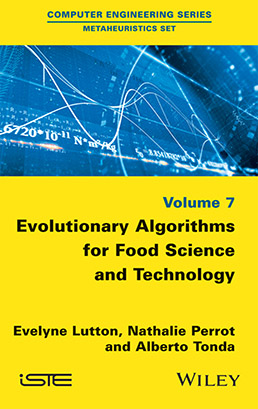
Food is an essential component of our lives, health and well-being, not to mention one of the most important sectors of industry, dealing with the chemical, agriculture, animal feed, food processing, trade, retail and consumer sectors. Providing an adequate food supply to a growing world population is one of the grand challenges facing our global society.
In these conditions, robust optimization methods are crucial for reaching breakthrough innovations and sustainable solutions. There is a huge opportunity for evolutionary computation, in particular for developing efficient integrative models and decision support tools, to address the aforementioned challenges.
This book addresses some questions related to optimization in the specific domain of food science, showing how evolutionary computation tools pave the way for new solutions, because of their versatility and robustness, and by offering new ways to better integrate the “human factor”.
1. Introduction.
2. A Brief Introduction to Evolutionary Algorithms.
3. Model Analysis and Visualization.
4. Interactive Model Learning.
5. Modeling Human Expertise Using Genetic Programming.
Evelyne Lutton received her PhD in 1990 from the Telecom Paris Doctoral School and her habilitation in 1999 from Orsay University. She was a permanent researcher at INRIA (1991-2013) where she headed several research groups, and is now a senior researcher at INRA.
Nathalie Perrot received her PhD in 1997 from the ENSIA (AgroParisTech) Doctoral School, and her habilitation in 2004 from Clermont-Ferrand University. She was a permanent researcher at IRSTEA (1998-2005) and is now a senior researcher at INRA.
Alberto Tonda received his PhD in 2010 from Polytechnic University of Turin, with a thesis on real-world applications of EAs. After post-doctoral work at Institut des Systèmes Complexes Paris and INRIA Saclay, since 2012 he has been a permanent researcher at INRA.